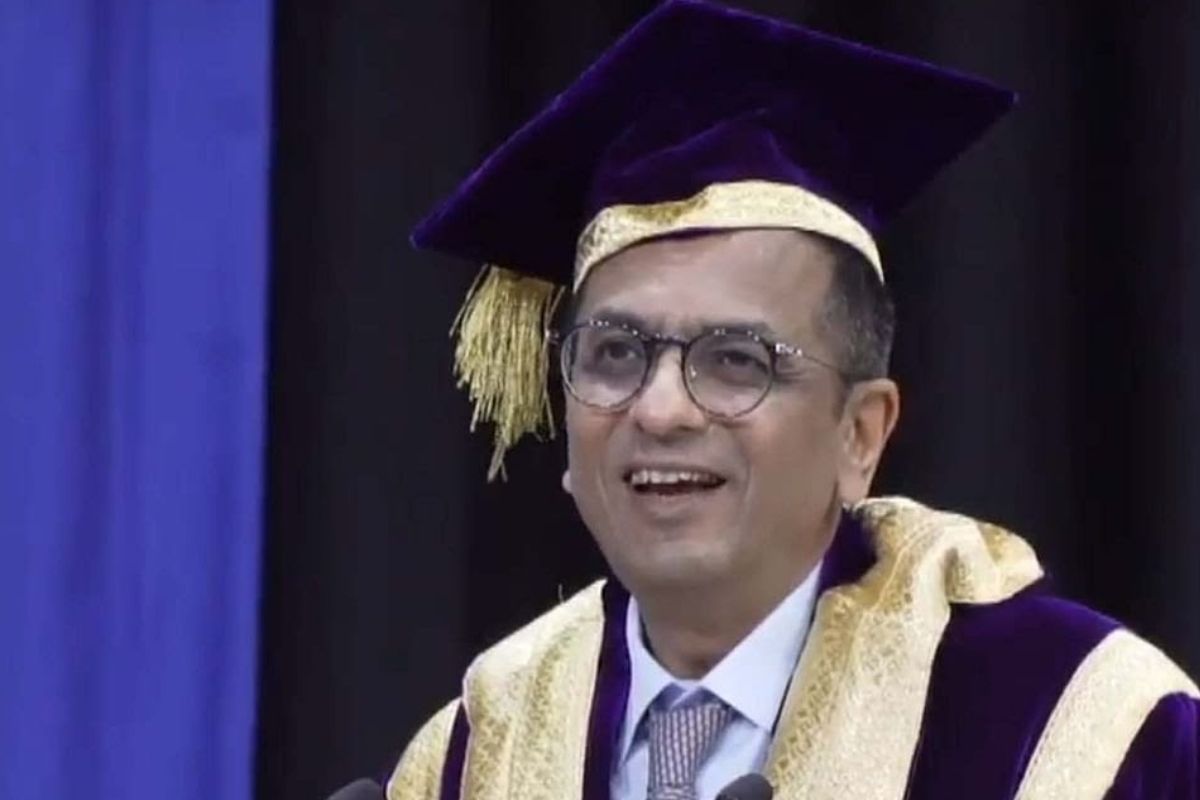Chief Justice of India Justice D Y Chandrachud said on Friday that any “formulation of new system” in the international investor law must be a “fair and balanced system” for the resolution of investor-state disputes, pointing out that the international investment law has been criticized for being disadvantageous to developing countries.
“… it was essential that the formulation of any new systems in international investment law, such as the creation of a permanent court, (should) adequately account for these concerns (of the developing countries) and ensure that they do not remain areas of concern as the need of the hour is a fair and balanced system for the resolution of investor-state disputes”, Chief Justice Chandrachud said.
Advertisement
CJI said that it was essential as international investment law has been criticized for being disadvantageous to developing countries.
Chief Justice Chandrachud’s exhortation for a fair and balanced system for the resolution of investor-state disputes came in his inaugural address at the three-day 2023 UNCITRAL South Asia conference.
The conference has been jointly hosted by the Ministry of External Affairs, UNCITRAL, and the UNCITRAL National Coordination Committee for India (UNCCI)
Recalling his earlier participation in the UNCITRAL conference in 2016, Chief Justice Chandrachud said he had spoken on the Investor-State Dispute settlement Reform (ISDS), which at that point was an unsettled question. The issue was whether UNCITRAL should address the topic of the ISDS reforms.
CJI Chandrachud told the UNCITRAL South Asia Conference today that since then (2016) UNCITRAL Commission has come a long way having “just adopted the first texts on ISDS reforms.”
CJI described the adoption of the first texts on ISDS reforms as an example of the pivotal role played by India at UNCITRAL in having this topic allotted to a Working Group of UNCITRAL.
Besides Chief Justice Chandrachud who inaugurated the conference, it was also attended by the Minister of State for External Affairs (MoS), Dr. Rajkumar Ranjan Singh, the Attorney General for India R. Venkataramani, Secretary of UNCITRAL Ms. Anna Joubin-Bret and noted jurist, senior advocate and Chair of UNCCI Fali S. Nariman.
Attorney General R. Venkataramani mentioned the fallacies facing the investment treaty regime and the need to revisit the same. The Attorney General mentioned the need for a ‘Declaration on Global Investment Law’, spearheaded by India and expressed hope of having a New Delhi Convention.
Dr. Rajkumar Ranjan Singh mentioned that India shares a unique relationship with UNCITRAL and has been a member of UNCITRAL since its inception being one of the first 29 member States. He also mentioned the diversity of the region and the economic strides made by the South Asian Region.
Secretary of UNCITRAL, Ms. Anna Joubin-Bret gave an overview of the various projects and subjects undertaken by UNCITRAL through its Working Groups and the status of the same.
At the conclusion of the inaugural session, Fali Nariman pointed to the ailments faced by the international arbitration system including the debate on arbitrator bias.
Nariman called for the need to have a balanced and fair system of arbitration.
The three-day conference, inaugurated today, is in continuation of the conference held in New Delhi, in 2016 to celebrate 50 years of UNCITRAL and is aimed at furthering India’s engagement with UNCITRAL and encouraging interaction between UNCITRAL, Judiciary, bureaucracy, academia and the legal fraternity.
The Economic Diplomacy division of the MEA had set up the arbitration cell as a point of repository of investment treaty, UNCITRAL and arbitration-related issues.
The division has over the years organised various conferences and capacity-building workshops which was acknowledged by the Chief Justice of India, Justice Chandrachud.
The inaugural session of the conference was also attended by judges of the Supreme Court of India, judges from various High Courts across the country, senior advocates, legal experts from across the world, academia and the government.










